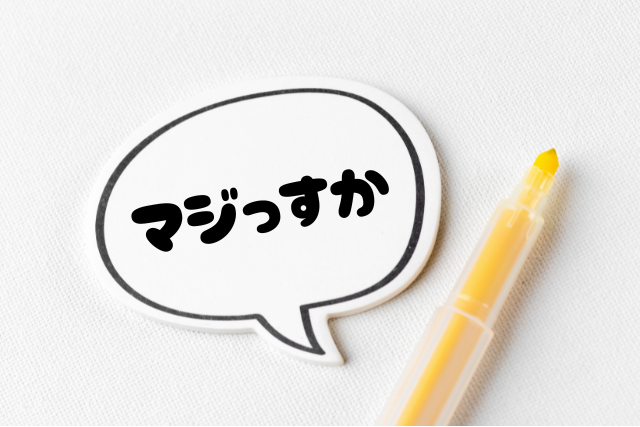Global Career Guide


- Jobs in Japan @ Daijob.com
- Global Career Guide
- Skill Up
- Slangs Used by Young People in the Workplace
Slangs Used by Young People in the Workplace

Slang Used by Young People in the Workplace
“Young People Slangs” a topic that is very interesting to discuss in Japan lately. When I was younger, the elders usually scolded me for not using proper Japanese. As I get older, I am quite concerned with the Japanese used by young people in today`s society.
Especially, the words used in cyberspace are getting used in a normal conversation, and seems like the slangs are brought into the workplace as well.
What I usually hear is….
マジっすか? Majissuka?=Really?
ヤバイっすね Yabaissune= That is crazy
あり得ない Arienai= Impossible
なるほどです Naruhododesu= Oh I see, I understand
~じゃないですか? ~jyanaidesuka?= Isn`t that it?
ガチで Gachide=I mean it
微妙ですね Bimyoudesune=It is debatable
ぶっちゃけ Bucchake= Honestly
These are good examples right?
“Majissuka?=Really?” Can be translated to “Hontoudesuka?= Is that true?” in a formal way. So for me personally, I hear “Majissuka?” to be very impolite as a businessman. Here are some example phrases, “Kore doushitara iissuka? What should I do with this?” “Kono shorui, oshietemorattemo iisssuka? Can you teach me these documents?” are good examples. These examples are when the formal term, “~desuka?” into shorter slang. At times, when listening to a foreign language, having an interest in and admiring the slang is very common. However, I personally believe “~っすか?~ssuka?” should never be imitated. You may be seen as a businessman that is still stuck in the university student stage.

Next is regarding the expression “ヤバイ, yabai.” Originally this word was used by thieves in the past, which means “There is danger approaching”.

Then, as time passed, the expression is now used as a negative term in today`s society. Here are some examples below.
“I messed up my presentation… Yabaina(I am in danger)…”
“I am so busy I am not prepared for tomorrow`s competition, it is a yabai(dangerous) situation” are examples.
Today, this term is used in an affirmative way as well.
“This movie was very yabai(Unbelievable)! I was moved!”
“The words from the Chief Director were very touching, yabakattane(It was unreal). It was definitely inspirational.”
These are good examples.
As a working member of society, I personally think it will not be a problem if you remember not to use “yabai” but I also advise to be careful not to mess up the meaning when you hear it.
“bucchakke” is a phrase broken down from “buchimakeru, Take out on” “buchiakeru, Throw out” and it is used as “jitsu wa, to be honest”. The meaning of, “arienai, Impossible” is originally used when “A certain situation occurs depending on one`s decision, and is hard to believe when it actually happens.” I take it as, when one`s standard becomes the root of making decisions for company duties.
“Naruhododesune=I see/I understand” is broken down from “Naruhodo, soudesune” or “Ossharu doori desune” Also, the term “gachide= I mean it” sounds very unprofessional from my point of view. (The slang, “gachide” is shortened from the term “gachinko” which is often used in a Sumo wrestling competition. Gachinko, usually translates to “Serious” or “Real”.)
When a new employee says, “Sore, gachide yabaissune!= That is seriously unreal!” I take a very deep breath, and give them my documents for my Japanese classes.
I might be very sensitive to these words as I am getting older. However, I personally believe others around my age range feel the same way as I do.
When running into, or hearing others using the “improper Japanese” younger or older, make sure you remind them to use the “proper Japanese”!
Article Writer

Tomonobu Tanaka
Human Academy Japanese Language School – Chief Manager
http://www.daijob.com/link/go/humanacademy_profile
After graduating, Mr.Tanaka taught Japanese in a number of countries in the ASEAN region including Malaysia and Brunei.
He then taught at a Japanese school for foreign students in Japan for 10 years before making a transition to school management.
As the role of Japanese language teaching changes, Mr.Tanaka focuses on Japanese teaching methods that fit the needs of students today.

Discover Your Next Role in Japan. Access more than 10,000 jobs for free!


